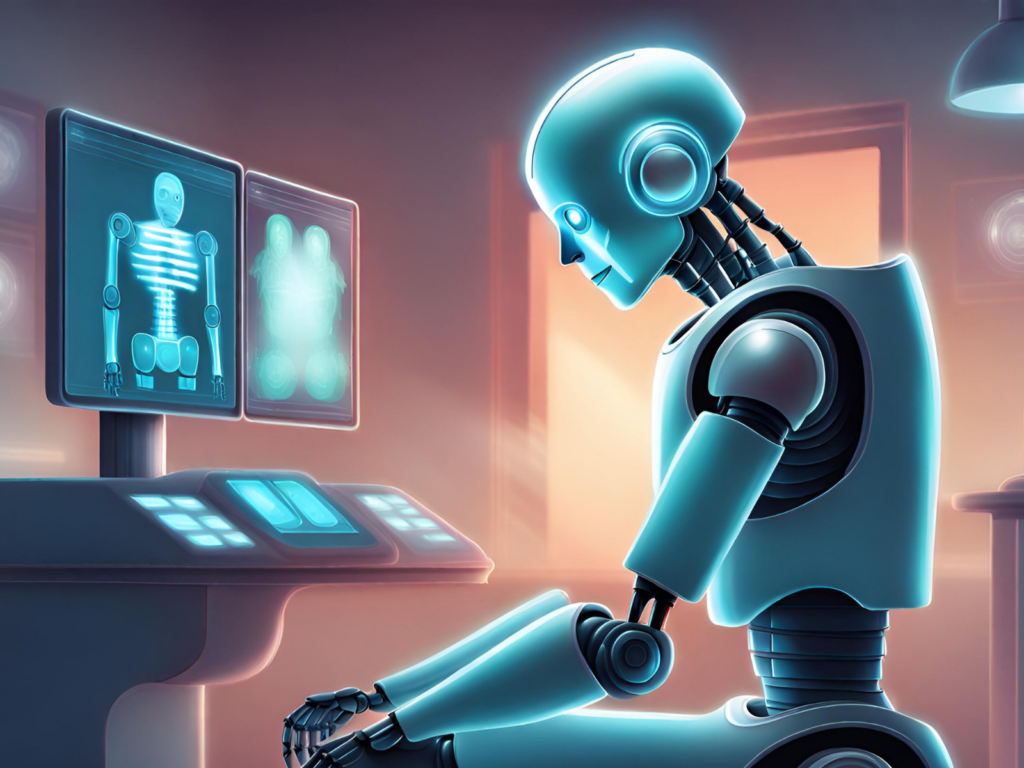Changing Medical Care Training: The Duty of Generative AI in Medical Education
Intro to Generative ai for healthcare course london
Visualize a globe where clinical training is not simply constrained to books and talks. An area where ambitious physicians can immerse themselves in reasonable scenarios without the constraints of traditional techniques. Invite to the future of medical care education, powered by generative AI. This cutting-edge innovation is set to reinvent just how we train our medical care professionals, improving their skills and knowledge in methods we once assumed impossible. In London, courses dedicated to Generative AI for healthcare are becoming game-changers, leading the way for a more efficient and appealing discovering experience. Let's explore this exciting brand-new frontier that assures to reshape medical education and learning as we understand it!
The present state of clinical education and learning and the need for renovation
Medical education is at a crossroads. Typical approaches have actually offered health care for years, but they often feel obsolete in today's busy world. Stiff curricula and dependence on passive understanding restriction trainees' capacity to adapt.The increase
of innovation requires a fresh approach. Future medical professionals must be proficient not just in medical abilities but additionally in browsing intricate information and electronic tools. Present training does not completely prepare them for these challenges.Additionally, diversity in individual populations requires more individualized education and learning approaches. One-size-fits-all models often neglect the special needs of numerous communities.There's an immediate requirement to bridge the gap in between concept and sensible application. This improvement is essential to make certain that grads prepare to satisfy real-world medical care difficulties effectively. The time for change has come; it's essential we embrace ingenious remedies that improve clinical training high quality while equaling improvements. How Generative ai for healthcare training london can improve traditional medical training techniques
Generative AI is changing the landscape of clinical training in London. By simulating reasonable professional circumstances, it offers trainees with vital hands-on experience without taking the chance of individual safety.These advanced systems can develop diverse patient profiles and problems, enabling health care professionals to practice medical diagnosis and therapy plans.
This direct exposure cultivates self-confidence and boosts critical thinking skills.Additionally, personalized discovering courses tailored by AI adjust to each pupil's speed. This implies that having a hard time students can receive targeted support while advanced students discover
complicated situations at an accelerated rate.Moreover, generative AI facilitates collaborative knowing environments where peers can engage in instance discussions sparked by real-time information simulations. Such communications encourage teamwork— a crucial skill in modern-day healthcare settings. The combination of this innovation not only optimizes the educational process but likewise ensures future specialists are well-prepared for unpredictable difficulties they will deal with in their professions. Future effects and possibilities for Generative AI in health care training The future of Generative AI in medical care training is bright and full of potential. Picture virtual simulations where pupils can exercise treatments with no threat to genuine people. This technology allows for duplicated method, leading to mastery over intricate skills.Moreover, individualized discovering experiences could end up being the
norm. By evaluating private efficiency data, Generative AI can tailor educational web content to satisfy each learner's requirements, guaranteeing that nobody drops behind.Collaboration in between clinical institutions and tech designers will foster ingenious devices that boost educational program style. These developments may lead to even more engaging multimedia sources that maintain students captivated.Generative ai for medical care course london Additionally, as AI continues to develop, we may see its combination into remote education platforms. This makes top quality training obtainable also in underserved locations or during worldwide wellness crises. The possibilities are genuinely countless for reshaping how future health care professionals learn and expand in their fields. Generative ai for healthcare training london Final thought: The impact of Generative AI on the future of medical education and learning and client The landscape of clinical education and learning is on the brink of transformation, driven by advancements like generative AI. This modern technology holds the possible to change exactly how health care experts are trained, making learning more efficient and customized to specific needs.Generative AI can imitate realistic individual situations, allowing students to practice analysis skills in a secure atmosphere. It additionally supplies personalized feedback that enhances understanding and retention. As we relocate in the direction of a future where generative AI for health care training in London comes to be common, we can anticipate better outcomes not just for students yet inevitably for individuals as well.Healthcare continues developing at an unmatched rate. The assimilation of innovative technologies such as generative AI will certainly be essential in guaranteeing that our medical workforce
continues to be equipped with the knowledge and skills essential to satisfy emerging obstacles. By welcoming these developments, teachers can prepare future generations of healthcare providers that prepare to deliver outstanding treatment in an increasingly complex world.As this journey unfolds, one thing is clear: the impact of generative AI on medical education and learning has far-ranging ramifications— reshaping curriculum design, enhancing learning experiences, and inevitably boosting client treatment throughout numerous setups. Accepting this adjustment could lead us toward a brighter future for both aspiring healthcare professionals and those they serve. 